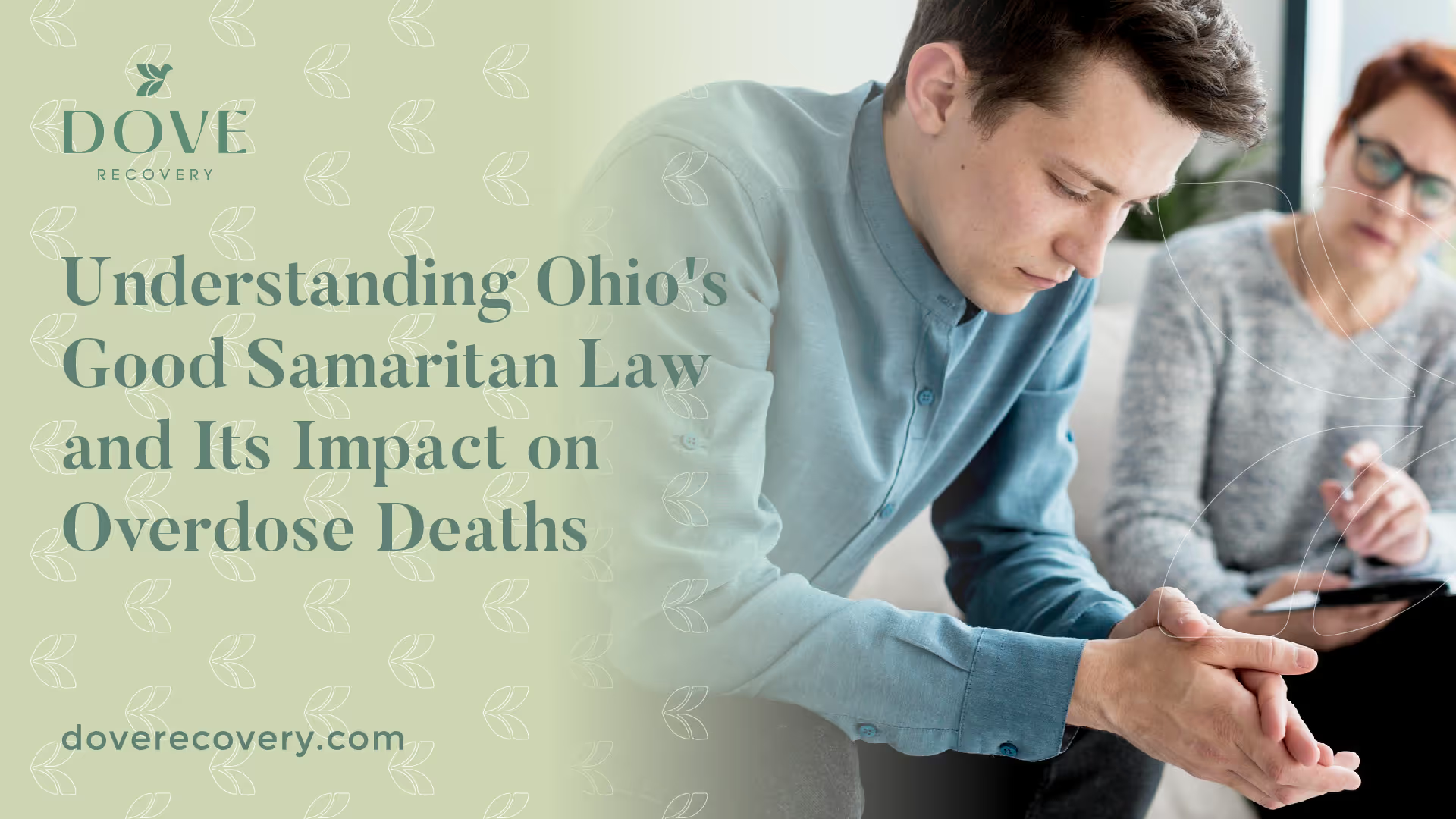Understanding Ohio's Good Samaritan Law and Its Impact on Overdose Deaths

Can You Be Charged for an Overdose in Ohio?
You may have heard about the opioid epidemic that has been sweeping the nation for the past few years. Ohio has been hit particularly hard by this epidemic, and as a result, the state has taken some drastic measures to try to curb the number of overdose deaths. One question that has been on the minds of many Ohioans is whether or not someone can be charged for an overdose in Ohio. In this article, we will explore this issue in depth.

What is the Good Samaritan Law?
Ohio has a Good Samaritan Law that aims to encourage people to seek medical help for individuals who are experiencing an overdose. This law provides immunity from prosecution for minor drug offenses, such as possession, for individuals who call 911 to report an overdose. The purpose of this law is to remove the fear of legal repercussions for those who may hesitate to seek help due to concerns for their own safety.
This law is particularly important because it encourages people to act quickly when they suspect someone is experiencing an overdose. This can often be the difference between life and death in many cases. By removing the fear of prosecution, the Good Samaritan Law ensures that people take swift action when they encounter a situation where medical assistance is needed.
The Scope and Impact of Ohio's Good Samaritan Law
Ohio's Good Samaritan Law provides immunity from prosecution for minor drug offenses like possession for individuals who call 911 to report an overdose. However, it's important to note that this immunity does not extend to more serious drug offenses or other crimes that may be committed in connection with an overdose.
For example, if someone is found to be selling drugs that caused an overdose, they can be charged with drug trafficking. Similarly, if someone is found to be driving under the influence and causes an overdose, they can be charged with a DUI. If someone is found to be neglecting a child who overdoses, they can be charged with child endangerment.
It's also worth noting that there have been cases in Ohio where people have been charged with involuntary manslaughter for providing drugs that led to an overdose death. This is a relatively new legal strategy being used to combat the opioid epidemic, and it remains to be seen how effective it will be in reducing the number of overdose deaths.
Despite these limitations, the Good Samaritan Law is an important measure in helping to prevent overdose deaths. It encourages individuals to seek medical help without fear of legal repercussions in situations where time is of the essence and can make all the difference.

Who Can Qualify for Immunity?
Under the Ohio Good Samaritan Law, anyone who calls 911 to report an overdose can qualify for immunity from prosecution for minor drug offenses such as possession. This means that the person reporting the overdose will not be charged with a crime for having drugs in their possession at the time of the incident.
It's important to note that this immunity is not limited to just friends or family members of the person experiencing an overdose. Anyone who calls 911, including strangers or passersby, can qualify for immunity as long as they meet the criteria set forth in the law.
In addition, it's worth noting that this immunity applies even if the person reporting the overdose has outstanding warrants or a criminal record. The purpose of the Good Samaritan Law is to encourage people to seek help without fear of legal repercussions, so these factors are not taken into consideration when determining eligibility for immunity.
Overall, Ohio's Good Samaritan Law is designed to save lives and encourage individuals to take action in emergency situations without fear of legal consequences. By providing immunity from prosecution for minor drug offenses, more people are likely to call 911 when they encounter someone experiencing an overdose, ultimately helping to reduce opioid-related deaths in Ohio.
Can You Really Go to Prison for Someone’s Overdose Death?
Ohio has taken a tough stance on drug-related deaths, and there have been cases where individuals have been charged with involuntary manslaughter for providing drugs that led to an overdose death. While this is a relatively new legal strategy being used in Ohio, it is important to note that the penalties for this offense can be severe.
Involuntary manslaughter is a first-degree felony in Ohio and carries a potential prison sentence of up to 11 years. The prosecutor must prove that the person charged provided the drugs that caused the overdose death and acted recklessly or with extreme indifference to human life. This can be difficult to prove, but if convicted, the consequences can be severe.
It's worth noting that not everyone who provides drugs that lead to an overdose death will be charged with involuntary manslaughter. Prosecutors must carefully consider the circumstances of each case before deciding whether or not to pursue charges. However, as Ohio continues to grapple with the opioid epidemic, it's likely that we will see more cases where individuals are charged in connection with overdose deaths.
Overall, while immunity from prosecution for minor drug offenses exists under Ohio's Good Samaritan Law, it's important for individuals to understand that there are still serious consequences for providing drugs that lead to an overdose death. It's crucial for all Ohioans to take steps to prevent overdose deaths by seeking help when needed and avoiding risky behaviors related to drug use.
Resources Available to Individuals Seeking Help for Addiction in Ohio
Ohio has a range of resources available to individuals seeking help for addiction. These resources include both public and private organizations that offer various levels of support to those struggling with substance abuse.
One such organization is the Alcohol, Drug Addiction and Mental Health Services (ADAMHS) Board of Cuyahoga County. This board provides a range of services, including prevention, treatment, and recovery support, to individuals in need of assistance. They also have a 24-hour crisis hotline that individuals can call for immediate help.
The Ohio Department of Mental Health and Addiction Services is another resource available to those struggling with addiction. This department offers a range of services, including prevention, intervention, treatment, and recovery support. They also have a resource line that individuals can call for assistance with finding treatment options.
In addition to these public resources, there are also many private organizations that provide addiction treatment services in Ohio. One such organization is the Glenbeigh Hospital and Outpatient Centers. Glenbeigh offers a comprehensive approach to addiction treatment that includes medical detoxification, residential treatment programs, outpatient programs, and aftercare services.
Other private organizations in Ohio include The Ridge Addiction Recovery Center, The Bluffs Rehab Center, and Arrow Passage Recovery Center. Each of these organizations offers its own unique approach to addiction treatment and recovery.
Overall, there are many resources available to individuals seeking help for addiction in Ohio. Whether you prefer public or private resources or are looking for specific types of treatment programs or support groups, there are options available to meet your needs. It's important for anyone struggling with addiction or supporting someone who is struggling with addiction to know that they are not alone and that help is available.
Strategies for Preventing Opioid Abuse and Addiction in Ohio
Prevention is key when it comes to addressing the opioid epidemic in Ohio. There are several strategies that can be implemented to help prevent opioid abuse and addiction.
1. Education and Awareness
One important strategy for preventing opioid abuse and addiction is education and awareness. This includes educating the public, including youth, about the dangers of opioids and how they can lead to addiction. It also involves raising awareness about alternative pain management options that do not involve opioids.
2. Prescription Drug Monitoring Programs
Another effective strategy for preventing opioid abuse is implementing prescription drug monitoring programs (PDMPs). These programs track prescriptions for controlled substances like opioids, making it easier to identify patients who may be at risk of abuse or addiction. PDMPs can also help identify doctors who may be overprescribing opioids.
3. Access to Treatment
Access to treatment is crucial for individuals struggling with opioid addiction. Increasing access to evidence-based treatment options like medication-assisted treatment (MAT) can help more people overcome their addiction and prevent relapse.
4. Safe Disposal of Unused Medications
Proper disposal of unused medications is another important strategy for preventing opioid abuse. Many people who become addicted to opioids start by misusing prescription medications that were not prescribed to them. By providing safe disposal options, we can reduce the supply of unused medications available for misuse.
5. Community Support
Finally, community support is essential in preventing opioid abuse and addiction in Ohio. This includes supporting local organizations that provide education, prevention, treatment, and recovery services related to substance abuse disorders.
By implementing these strategies and working together as a community, we can make progress in reducing the number of overdose deaths in Ohio and helping those struggling with addiction get the help they need to recover.
Conclusion
In conclusion, while Ohio's Good Samaritan Law provides some protection for people who report overdoses, it is not a blanket immunity from all drug charges or other crimes that may be committed in connection with an overdose. As the state continues to grapple with this epidemic, it is likely that we will continue to see new legal strategies being employed to try to reduce the number of overdose deaths.
Sources:
- Ohio Revised Code § 2925.11
- Ohio Revised Code § 3719.84
- American Bar Association: Ohio’s Good Samaritan Law: What You Need to Know
- Ohio Department of Mental Health and Addiction Services: Good Samaritan Law
